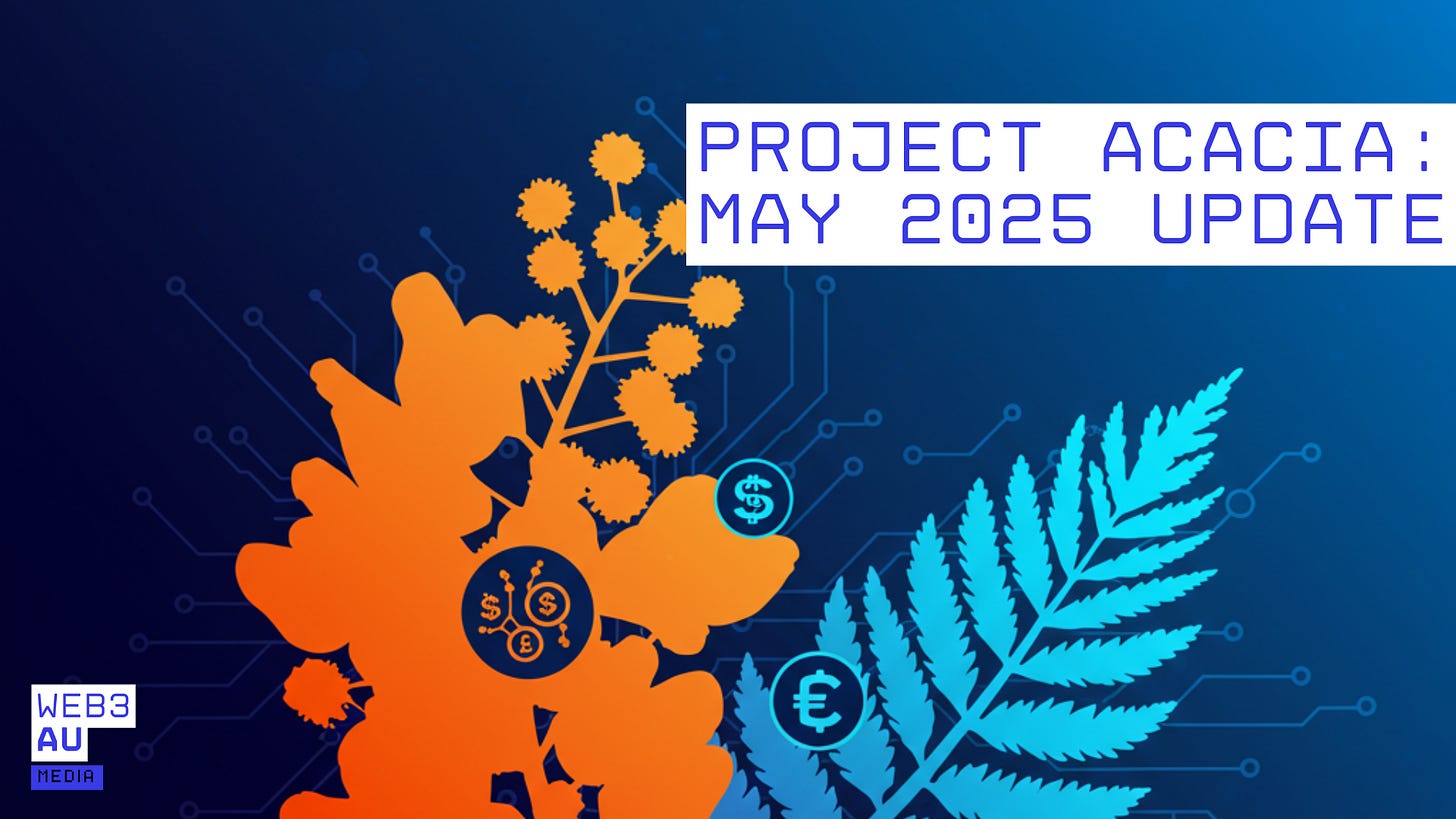The Australian Fintech Project Acacia: Industry Advisory Group Convenes in May 2025
Meeting focused on the progress and future direction of digital money research in wholesale tokenised asset markets.
Update provided on the selection of Use Case Proposals; Proof of Concept selections by the week of May 19th and Pilot proposals by the week of June 2nd, 2025.
Discussion on shortlisting networks for the Pilot wholesale CBDC (wCBDC) phase, including Ethereum, Hedera, Redbelly, and R3 Corda.
Review of international developments impacting digital assets and money, such as US GENIUS Act, Circle and VISA initiatives, and UK cryptoasset legislation.
Discussion on stablecoin and deposit token interchange, including US and UK trials and the Ubyx proposal.
Exploration of priorities for stablecoins and tokens in Australia and the role of the RBA.
The Project Acacia Industry Advisory Group (IAG) held its latest meeting in May, 8, 2025, bringing together representatives from the Reserve Bank of Australia (RBA), the Digital Finance Cooperative Research Centre (DFCRC), and key industry participants to discuss the progress and future direction of the research project exploring digital money in wholesale tokenised asset markets.
The meeting provided an update on the project's significant progress, particularly regarding the selection of Use Case Proposals. The project team is on track to communicate selections for Proof of Concept proposals by the week of May 19th, followed by Pilot proposals from the week of June 2nd. The progression of these selected proposals is contingent on the finalisation of proposal details and participation agreements.
A key discussion point was the shortlisting of networks for the Pilot wholesale CBDC (wCBDC) phase. The shortlisted networks include Ethereum (or EVM-compatible) private permissioned networks (supporting 6 proposals across 3 networks), Hedera private permissioned (1 proposal), Redbelly public permissioned (3 proposals), and R3 Corda private permissioned (3 proposals). The selection criteria for these networks included the project timetable and available resources for due diligence and distribution arrangements, the level of industry interest and proposal support, and the networks' capacity to address public interest considerations for issuing public money on external ledgers.
The IAG also reviewed recent international developments impacting digital assets and digital money. Highlights included updates on the expedited vote on payment stablecoin legislation (GENIUS Act) in the US Senate, new stablecoin initiatives from Circle and VISA, and draft legislation from the UK Treasury seeking feedback on regulating cryptoassets. Discussions also covered the Bank of England's renewed RTGS service and its exploration of wholesale experiments, as well as the UK Government's inquiry into the design options for issuing a sovereign short-term instrument on Distributed Ledger Technology (DLT) as part of their Digital Securities Sandbox exercise.
An extended session was dedicated to stablecoin and deposit token interchange. Led by industry experts, this discussion delved into insights from US and UK regulated liabilities network trials, an overview of the Ubyx proposal, and its potential application in the Australian context. The group also explored priorities for stablecoins and tokens in Australia for both market participants and regulators, considering the implications for Project Acacia and the appropriate role of central bank money and the RBA in this evolving landscape.
The meeting underscored the collaborative effort between the RBA, DFCRC, and industry in exploring the potential of digital money and tokenised assets to enhance the efficiency and resilience of Australia's financial markets.
About Project Acacia
Project Acacia is a research initiative led by the Reserve Bank of Australia and the Digital Finance Cooperative Research Centre to investigate how different forms of digital money and associated infrastructure could support the development of wholesale tokenised asset markets in Australia. For a detailed chronology of project updates, please refer to the DFCRC website.


